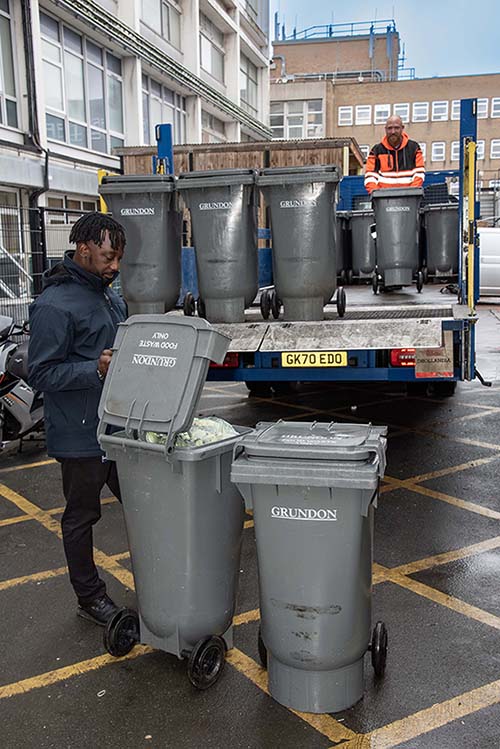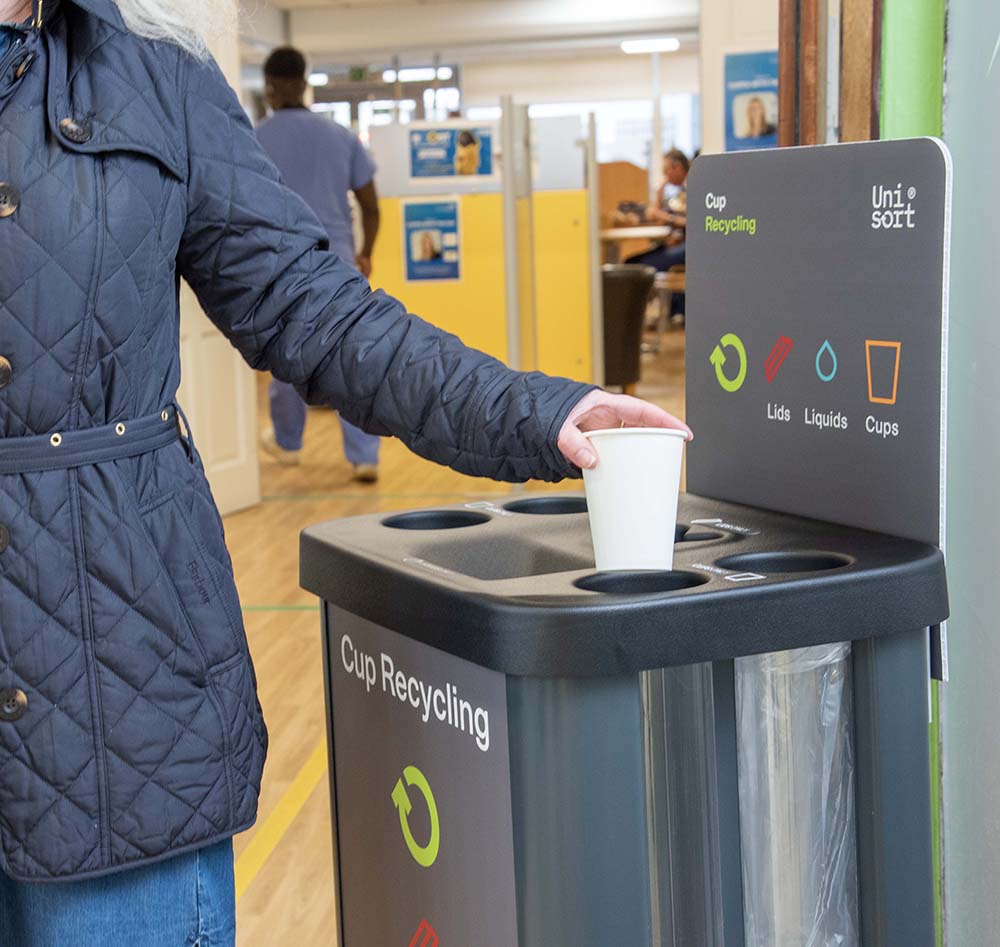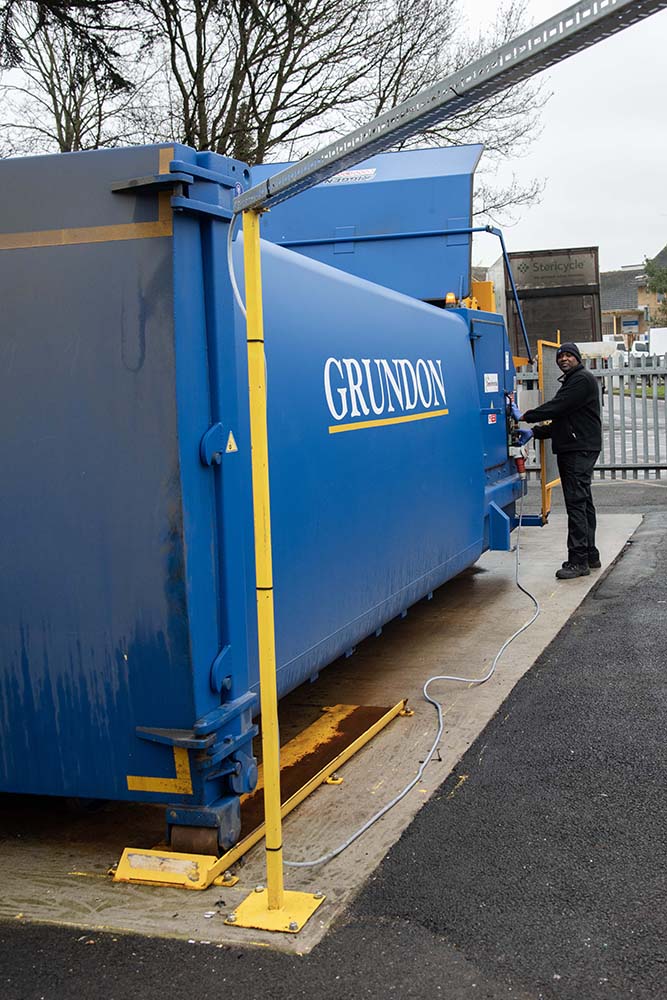With sustainability high on the agenda at The Hillingdon Hospitals NHS Foundation Trust, the Estates and Facilities Team team has been keen to maximise recycling opportunities.
Just over a year ago, it began working with Grundon Waste Management, a partnership that has produced some impressive results across both Hillingdon Hospital and nearby Mount Vernon Hospital.
Over the initial 10-month period, successes have included:
Hospital food waste management
Hyder Mohammad, Head of Sustainability at the Trust, is in charge of procurement. He explains why working with Grundon has made such a difference.
“One of the areas I look after is waste management and the NHS national guidelines around the waste hierarchy make it a requirement to separate food waste,” he said. “Prior to Grundon coming on board we had some food waste recycling, but the rest went into general waste bins, which was inefficient and necessitated twice-weekly collections.
“Now, we have separate food waste bins and, because Grundon is very good at providing monthly data, we now know the quantity of food waste being collected and can input that, into the NHS national database. Sending the food waste for Anaerobic Digestion, rather than to landfill as happened before, is creating green energy which in turn helps us to decarbonise our activity and increase sustainability.”
Another big benefit, says Hyder, is the food waste bin exchange service which sees dirty bins full of food waste taken away and replaced with clean, sanitised bins.
“Previously, because the bins were just emptied and not cleaned, we had some issues with pest control and cleanliness,” he added. “Now, we no longer have those problems and the cleanliness of the area is very much improved. Overall, so we have been very pleased with the recycling changes introduced.”
On average, between the two hospitals, just over 4,000 kgs of food waste are collected every month.

At present, the segregated food waste comes only from patient dining, but plans are afoot to expand this to include on-site staff restaurants.
To help ensure the changes went smoothly, both Hyder and Grundon’s Jack Yarrow, who oversees the relationship, worked closely with the in-house catering team. Jack organised a waste awareness day for catering staff and continues to provide support, including and supplying food recycling posters and leaflets.
“The catering department is very satisfied with the waste food collection arrangements with Grundon. The bin exchange system works extremely well. ”
Anne Byrne
Facilities Manager (Catering and Housekeeping Services)
“We feel confident that there are no unnecessary risks created from food spillage in our bin area. While our overall objective is to reduce food waste it is reassuring to know that the food waste, we do produce is being put to use in the creation of green energy.”
Taking food waste out of general waste has significantly reduced the amount of non-recyclable waste that needs to be collected, meaning general waste collections have been reduced by half.
In addition, Grundon has supplied a much larger (32 cubic yard) compactor for the service yard, allowing more waste to be compacted on-site. With an ‘added value’ touch, Grundon also provided guide rails around the compactor and built an ‘archway’ to ensure cables were lifted off the ground to keep them tidy.

Food waste aside, Grundon is also trialling its Coffee Cup Recycling service
A new 1100 litre bin was installed to capture disposable cups from areas such as visitor cafés. Grundon's cup recycling service enables cups to be sent to specialist recycling facilities and turned into recycled paper
Based at Hillingdon Hospital, the Trust’s Waste Monitoring Officer, Emmanuel Bature, is responsible for undertaking waste audits and compliance checking.
His role includes assessing and analysing the data provided by Grundon and using it to input into waste strategy and planning.
“We do monthly audits and compliance checks, making sure the right waste is going in the right bins etc.,” said Emmanuel. “Grundon supply us with clear food waste bags so we can easily check food waste is going into the correct bins.
“One of the biggest improvements is also having a bigger compactor for general waste. Waste used to go into sacks (which became heavy) and had to be tipped into waste bins before being wheeled to the compactor. This has made it much easier to manage the waste and improved manual handling too.

“Jack is always there to help, he is very hands on and, if there are any problems, then he will always sort them out straight away.”
While mixed recycling is handled by the local borough council, Grundon also provides a bulk waste collection service for items such as broken furniture and mattresses, customising a skip with double doors and a lid to keep items safely stored.
With an emphasis on increasing sustainability still further, Hyder says overall recycling levels are “very good”, with other initiatives including a drive to re-use items such as furniture and reduce waste wherever possible.
